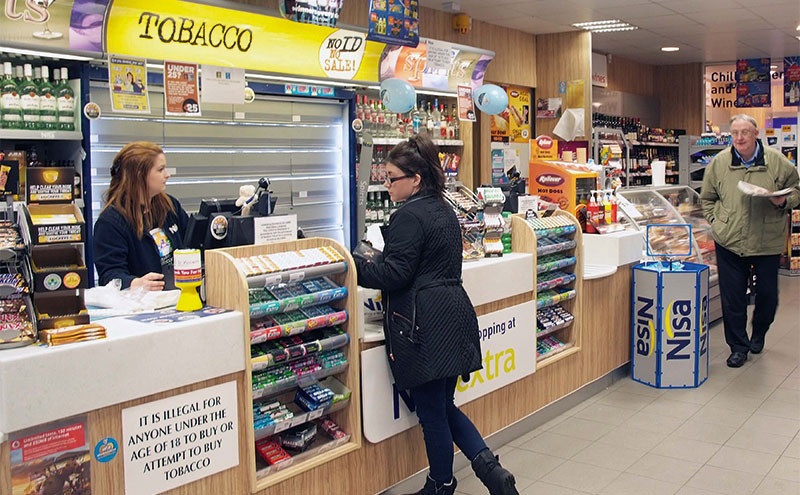As the Scottish Government considers more regulations on tobacco, Simon Clark urges independent retailers to join forces with consumers.

By Simon Clark
THE smoking ban, we were told, would help save thousands of lives. In reality it made very little difference. Smoking rates, which had been in decline for decades, continued to fall in line with historical trends until the emergence of e-cigarettes as a genuine alternative to traditional cigarettes accelerated the smoking cessation rate.
The pub industry however took a huge hit. In Scotland hundreds of pubs closed following the introduction of the smoking ban in March 2006. Within three years Scotland had lost 7.1% of its pub estate.
Undeterred by the impact of anti-tobacco policies on small business, parliaments in Edinburgh, Westminster and Brussels have introduced further measures including graphic health warnings, a display ban, higher taxes, bans on ten-packs and (from 2020) menthol-flavoured cigarettes, plus plain packaging.
Convenience stores may not have suffered to the same extent as the pub industry following the smoking ban, but proposals included in the Scottish Government’s latest tobacco control plan, announced in June, could push many more corner shops out of business.
The updated strategy features 44 action points including proposals to restrict the number and density of tobacco retailers in a particular area with a view to making tobacco products ‘less available’.
The Scottish Government will also consider further pricing measures including a policy similar to the minimum pricing of alcohol that was introduced in Scotland in May. Another proposal is to ‘add compliance conditions into the existing retail registration scheme or introduce a form of licensing’.
The predicament facing consumers and retailers in Scotland was highlighted in a new report published last month. Describing the smoking ban and minimum pricing of alcohol as examples of the ‘McNanny state’, the report attacked what it calls the “politics of intervention”.
According to the author, former MSP Brian Monteith, “Public health officials moralise on our lifestyles with edicts based more on superstition than hard evidence. They make outrageous claims based on disreputable science that on investigation are often found to be baseless.
“With smoking and alcohol under the cosh the next big thing is going to be controlling what we eat. Portion sizes, calorie levels, and promotions that save money for those least well off will all be attacked.” Scotland, Monteith added, must break its “addiction to big government and creeping prohibition”.
At the very least it’s time for a national debate on the role of government in changing people’s lifestyle. According to a recent poll by Populus, 54% of Scottish consumers think government policies to reduce smoking rates have already gone too far or far enough.
The poll of 1,021 adults in Scotland also found that 85% think tobacco taxation is too high (44%) or about right (41%). Only one in seven respondents think tobacco taxation is too low.
Significantly the public believes the Scottish Government has more pressing concerns than tackling smoking.
Asked to rate a list of ten priorities for the NHS in Scotland, respondents said investing in new doctors and nurses is the most important priority, tackling smoking the least important.
Crucially, 61% of respondents agreed that existing measures to reduce smoking rates should be subject to a full and independent review to consider their impact on consumers, retailers and public health before the Government proceeds with further measures to reduce the sale and consumption of tobacco.
Based on this and previous Populus surveys, the political establishment would seem to be out of step with the public on tobacco control. So the next question is, what are we going to do about it?
Retailers and consumers are not always on the same page but if there’s one thing that ought to unite us it’s the fight for choice and the struggle against costly and oppressive regulations.
Let’s face it, restrictions on the number of shops that sell tobacco will hit consumers as well as retailers. Likewise, introducing a minimum price for tobacco will fuel illicit trade, discriminate against law-abiding consumers and hurt legitimate retailers.
Small business has borne the brunt of the war on tobacco but the battle is far from over. With tobacco remaining a key footfall driver for convenience stores, it’s an issue Scotland’s retailers can ill afford to ignore.













